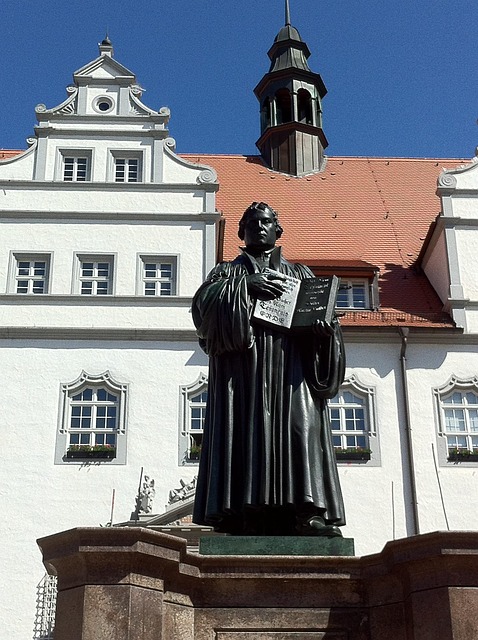Accurate translations of UK theses and dissertations are essential for academic integrity and global reach. Students should engage reputable translation services specializing in academic writing, employing native speakers skilled in relevant terminology and formatting. These services utilize advanced QA protocols, terminological databases, and human expertise to ensure precision and conceptual clarity. Proofreading, editing, and following university guidelines are crucial steps. Avoid machine translation and literal interpretations for high-stakes documents; instead, prioritize quality through expert human translators.
Ensuring accuracy in dissertation translations is paramount for academic integrity. When navigating the complex world of higher education, students often turn to translation services for UK theses and dissertations. This comprehensive guide explores vital steps to guarantee precision, from selecting reputable providers to leveraging technology and linguistic expertise. Discover a step-by-step approach to quality assurance, including best practices for preparation, editing, and common pitfalls to avoid.
- Understanding the Significance of Translation Accuracy
- Selecting Reputable Translation Services for Academic Works
- Preparing Your Dissertation for Translation: A Step-by-Step Guide
- Quality Assurance Processes in Professional Thesis Translation
- The Role of Native Speakers and Linguistic Experts
- Leveraging Technology: Machine Translation vs. Human Translation
- Proofreading and Editing: Ensuring Flawless Dissertations
- Common Pitfalls to Avoid During the Translation Process
Understanding the Significance of Translation Accuracy

Accurate translations are paramount in academia, especially when it comes to dissertations. The significance of translation accuracy in this context cannot be overstated; it directly impacts the integrity and credibility of research. When a dissertation is translated, whether for submission or publication, the translation service provider plays a crucial role in ensuring the academic work’s meaning, nuances, and context are preserved across languages.
For students submitting UK theses and dissertations, engaging reputable translation services with expertise in academic writing is essential. These services employ professional translators who not only have language proficiency but also understand the specific terminology, formatting, and citation styles required in academia. By choosing specialized translation services for their theses and dissertations, students can rest assured that their work will be accurately conveyed, enabling effective communication of their research contributions to international academic audiences.
Selecting Reputable Translation Services for Academic Works

When it comes to academic works like theses and dissertations, selecting a reputable translation service is paramount to ensuring accuracy. Look for companies specializing in academic translations, particularly those catering to the UK market, as they understand the nuances of British English and academic conventions. Reputable services employ native speakers and subject matter experts who can handle complex terminology and ensure the translated content maintains its integrity.
Check for certifications like ISO 17100, which guarantees professional standards, and look into their processes. Many top-tier translation services offer quality assurance measures, including multiple rounds of review by both translators and editors. Online reviews from previous clients can also give you insights into the service’s reliability and the quality of their work on thesis and dissertation translations.
Preparing Your Dissertation for Translation: A Step-by-Step Guide

Preparing Your Dissertation for Translation: A Step-by-Step Guide
1. Proofread and Edit: Begin by thoroughly reviewing your dissertation to correct any grammatical errors, inconsistencies, or unclear phrasing. This step is crucial as it ensures that the final translated document accurately reflects your academic work. Use tools like spell checkers and language editing software to help catch mistakes you might miss.
2. Standardize Formatting: Ensure your dissertation follows a consistent formatting style, adhering to any specific guidelines provided by your university or institution. This includes font choices, margin sizes, heading styles, and referencing formats. Standardization makes the translation process smoother, as translators can focus on language without worrying about layout discrepancies. Consider using reference management software to maintain accurate citations throughout.
3. Choose a Reputable Translation Service: Opting for professional translation services specialized in UK theses and dissertations is essential. Look for companies with experienced linguists who possess expertise in your academic field. Verify their credentials, customer reviews, and the quality of their previous translations. Reputable services offer a guarantee of accuracy and confidentiality, ensuring your work receives the attention it deserves.
4. Provide Contextual Information: When engaging translation services, offer clear instructions and relevant context to help translators understand your dissertation’s scope. Include any specific terminology or jargon that must be preserved accurately. This collaboration ensures the translation stays true to your academic voice and intentions.
Quality Assurance Processes in Professional Thesis Translation

In the realm of academic research, ensuring accuracy in dissertation translations is paramount, especially for students relying on professional translation services for UK theses and dissertations. Quality Assurance (QA) processes play a pivotal role in upholding the integrity of translated documents. Reputable translation companies employ rigorous QA protocols to guarantee error-free outcomes. These processes often involve multiple stages of review by expert translators and editors who scrutinize the text for linguistic precision, conceptual clarity, and adherence to academic conventions.
Advanced tools like translation memory software and terminological databases further enhance accuracy. Translation memory ensures consistent terminology usage across the entire document, while terminological databases provide access to approved terms specific to the student’s field of study. By combining human expertise with technological aids, professional thesis translation services offer a robust QA framework, ensuring that UK students receive high-quality, accurate translations tailored to their academic needs.
The Role of Native Speakers and Linguistic Experts

Ensuring accuracy in dissertation translations is a multifaceted process, and one of its critical components is the involvement of native speakers and linguistic experts. These professionals play a pivotal role in maintaining the integrity of academic work when it comes to translation services for UK theses and dissertations. Native speakers, who are fluent in both the source and target languages, bring an innate understanding of cultural nuances and idiomatic expressions, ensuring that the translated text flows naturally and accurately reflects the original intent.
Linguistic experts, on the other hand, possess a deep knowledge of grammar, syntax, and vocabulary specific to academic writing. They carefully scrutinize every aspect of the translation, from terminology to sentence structure, to guarantee precision and consistency. Their expertise helps in navigating complex concepts and specialized jargon, ensuring that the translated dissertation remains true to its original scholarly content.
Leveraging Technology: Machine Translation vs. Human Translation

In the digital age, technology has greatly influenced the translation industry, offering both machine-based and human-driven approaches for dissertation translations. On one hand, Machine Translation (MT) tools, such as AI-powered systems, have become increasingly sophisticated. These platforms can rapidly process vast amounts of text, making them appealing for quick, cost-effective solutions. For instance, students seeking translation services for UK theses and dissertations often turn to MT for preliminary drafts or tight deadlines. However, while MT is useful for basic accuracy, it may struggle with complex academic language, idioms, and cultural nuances that are crucial in scholarly works.
In contrast, human translation involves professional linguists who not only possess expertise in the target language but also have a deep understanding of the subject matter. This ensures a more accurate transfer of meaning and intent, especially for intricate academic content. Human translators can provide context-specific interpretations, clarify ambiguous phrases, and maintain the scholarly tone appropriate for dissertations. Thus, when accuracy is paramount, particularly for high-stakes academic documents like theses and dissertations, human translation offers an unparalleled level of precision, ensuring that the meaning intended by the original writer is conveyed effectively in the target language.
Proofreading and Editing: Ensuring Flawless Dissertations

Proofreading and editing are vital components in ensuring the accuracy and quality of dissertation translations, especially when it comes to UK theses and dissertations. It is a meticulous process that involves several steps. Firstly, professional translators conduct a thorough review of the source document, checking for any linguistic nuances and academic terminology specific to the field of study. They ensure that the translation accurately conveys the intended meaning while maintaining the integrity of the original work.
Editing then follows, where a dedicated editor scrutinises the translated text. This step involves fact-checking, verifying references, and ensuring consistency in formatting, citations, and terminology throughout the dissertation. Editors also pay close attention to grammatical accuracy, sentence structure, and overall readability, making certain that the final translated document meets academic standards and is suitable for its intended audience. These rigorous proofreading and editing processes are essential to deliver high-quality translation services for UK theses and dissertations, ensuring they are flawless and ready for submission.
Common Pitfalls to Avoid During the Translation Process

When translating a dissertation, one must steer clear of several common pitfalls to ensure accuracy. A frequent issue is the literal translation approach, where phrases are translated word-for-word without considering the original context and meaning. This can result in awkward phrasing or even misinterpretations, especially when cultural nuances are involved. Another pitfall is the use of subpar translation services, which may not have the expertise or understanding needed to handle academic language and complex concepts. Inaccurate translations can lead to significant errors in the final document.
Additionally, rushing the process or failing to revise and edit the translated text thoroughly can cause mistakes to slip through. It’s crucial to choose a reputable translation service specializing in UK theses and dissertations to avoid these pitfalls. They should employ native speakers with academic backgrounds for an assuredly precise and contextually apt translation.
Ensuring accuracy in dissertation translations is paramount for conveying your research effectively. By selecting reputable translation services that employ rigorous quality assurance processes, leveraging the expertise of native speakers and linguistic experts, and utilizing a combination of machine and human translation, you can achieve reliable results. Following a structured preparation guide and implementing thorough proofreading and editing further mitigate errors. Avoiding common pitfalls, such as rushed translations or neglecting cultural nuances, is essential to maintain the integrity of your work. When choosing translation services for UK theses and dissertations, these strategies will help ensure your academic writing is accurately represented in any language.



